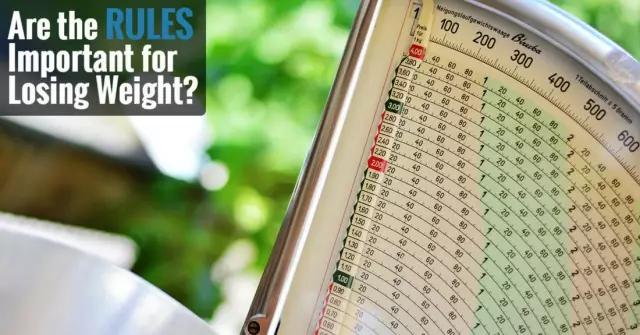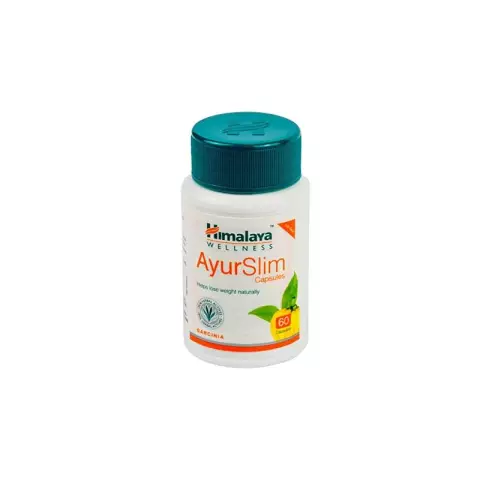- Author Rachel Wainwright wainwright@abchealthonline.com.
- Public 2023-12-15 07:39.
- Last modified 2025-11-02 20:14.
Caloric content of oil

Butter is a dairy product made by whipping fresh or fermented cream or milk. As a rule, the calorie content of butter is much higher than in other dairy products, so it is used for frying, making various baked goods and sauces.
Palm oil is an edible vegetable oil obtained from the fruit of the oil palm, primarily the fruit of the African palm Elaeis Guineensis. Palm oil is reddish orange in color due to its high beta-carotene content. Palm oil in nutrition is used for the preparation of glaze fats, confectionery fats, milk fat substitutes, filling fats, spreads, cocoa butter equivalents and shortenings, as well as frying fat for frying. Also, palm oil in food is found in cheese masses, mayonnaises, processed cheeses, bulk margarines and soup mixtures.
Sunflower oil is vegetable oil squeezed from sunflower seeds. High-calorie sunflower oil is widely used in cooking as a frying oil and in cosmetic formulations as a softener.
Vegetable oil is a triglyceride of fatty acids extracted from plant materials. To prepare vegetable oil, use:
- Plant seeds (flax, canola, sunflower, sesame, milk thistle, hemp, soy, cotton, mustard and black cumin);
- Palm and olive fruits;
- Fruit pips of cherries, apricots and grapes;
- Seeds of watermelon, pumpkin, sea buckthorn, melon and fir;
- Nuts.
Useful properties of oil
The beneficial properties of sunflower oil, the calorie content of which is 889 kcal per 100 ml, includes its ability to reduce the risk of developing cardiovascular diseases, as well as prevent a heart attack.
Consuming sunflower oil daily helps prevent rheumatoid arthritis, asthma, and colon cancer. The calorie content of sunflower oil is due to the high fat content of this product.
The calorie content of butter, as you know, is quite high, as well as its cholesterol content, which casts doubt on the usefulness of this product. However, despite such weighty arguments, butter has a number of properties beneficial to the body, namely:
- The oil contains lauric acid, which is essential for the treatment of fungal infections and candidiasis;
- It contains lecithin, which is essential for cholesterol metabolism;
- The oil is rich in antioxidants that protect the body from free radical damage;
- It is an excellent source of vitamins E and K, as well as important mineral salts;
- The saturated fats in the oil have anti-tumor and anti-cancer properties;
- The oil contains conjugated linoleic acid, which is a powerful anti-cancer agent and boosts immunity;
- Vitamin D, found in butter, is essential for the absorption of calcium;
- Butter is a source of anti-stiffness, which protects the body from joint calcification;
- Contains arachidonic acid, which plays an important role in brain function and is a vital component of cell membranes.
Palm oil, which has the same calorie content as sunflower oil, is a good source of vitamin A. It is used to increase metabolic rate, treat high blood pressure, and treat cyanide poisoning. In industry, palm oil is used to make cosmetics, soap, toothpaste, waxes, lubricants, and inks.
Caloric content of oil: nutritional and energy value of the product

The calorie content of the oil is quite high, but this does not prevent the widespread use of this product in cooking, dietetics and cosmetology.
Nutritional value and caloric content of oil per 100 g, depending on the type, is:
- Butter: fat - 72.11 g, saturated fat - 51.368 g, polyunsaturated fat - 3.043 g, monounsaturated fat - 21.021 g, cholesterol - 180 mg, sodium - 11 mg, potassium - 24 mg, carbohydrates - 1.2 g, sugar - 0.06 g, proteins - 0.85 g, water - 25 g, vitamin PP - 0.6 mg, beta-carotene - 0.3 mg, vitamin B2 - 0.12 mg, vitamin E - 1 mg, vitamin B5 - 0.05 mg, thiamine - 0.01 mg, calcium - 24 mg, phosphorus - 30 mg, magnesium - 0.4 mg, iron - 0.2 mg, sulfur - 8 mg, copper - 2.5 μg, zinc - 0.1 mg, manganese - 0.002 mg and vitamin A - 0.6 mg. The calorie content of butter is 670 kcal;
- Sunflower oil: fats - 99.9 g, water - 0.1 g, saturated fatty acids - 12.5 g, unsaturated fatty acids - 65 g, vitamin E - 44 mg and phosphorus - 2 mg. The calorie content of sunflower oil is 899 kcal;
- Palm oil: fats 99.9 g, water 0.1 g, saturated fatty acids 48 g, unsaturated fatty acids 10 g, vitamin E 33.1 mg and phosphorus 2 mg. The calorie content of palm oil is 899 kcal;
- Olive oil: fats 99.8 g, water 0.2 g, saturated fatty acids 16.8 g, unsaturated fatty acids 13.2 g, vitamin E 12.1 mg, phosphorus 2 mg, and iron 0.4 mg. The calorie content of olive oil is 898 kcal;
- Rapeseed oil: fats 99.9 g, water 0.1 g, saturated fatty acids 10 g, unsaturated fatty acids 33 g, vitamin E 18.9 mg and phosphorus 2 mg. The calorie content of rapeseed oil is 899 kcal;
- Linseed oil: fats 99.8 g, water 0.2 g, saturated fatty acids 9.6 g, unsaturated fatty acids 67.7 g, vitamin E 2.1 mg, and phosphorus 2 mg. The calorie content of linseed oil is 898 kcal;
- Sesame Oil: Fat 99.9 g, Water 0.1 g, Saturated Fatty Acids 14.2 g, Unsaturated Fatty Acids 42.5 g, and Vitamin E 8.1 mg. The calorie content of sesame oil is 899 kcal;
- Hemp oil: fat 99.9 g, water 0.1 g, saturated fatty acids 9.5 g, unsaturated fatty acids 79 g, and vitamin E 5.7 mg. The calorie content of hemp oil is 899 kcal;
- Soybean oil: fat 99.9 g, water 0.1 g, saturated fatty acids 16 g, unsaturated fatty acids 60 g, vitamin E 17.1 mg, phosphorus 2 mg, iron 0.05 mg and zinc - 0.01 mg. The calorie content of soybean oil is 899 kcal;
- Mustard oil: fats - 99.8 g, water - 0.2 g, saturated fatty acids - 6.1 g, unsaturated fatty acids - 31.5 g, vitamin A - 0.2 mg, beta-carotene - 0.15 mg, vitamin E - 17.1 mg, vitamin A (RE) - 25 μg, vitamin E (TE) - 9.2 mg, and phosphorus - 2 mg. The calorie content of mustard oil is 898 kcal;
- Peanut butter: fats 99.9 g, water 0.1 g, saturated fatty acids 22.2 g, unsaturated fatty acids 29 g, vitamin E (TE) 16 mg, and phosphorus 2 mg. The calorie content of peanut butter is 899 kcal;
- In order to calculate how many calories are in a spoonful of oil, you need to determine how many ml is in the spoon. So, the volume is 1 tbsp. is from 12 to 17 g, and the caloric content of vegetable oil, on average, is 900 kcal. Accordingly, the calorie content of 1 tbsp. vegetable oil will be between 108 and 153 kcal. Volume 1 tsp. is 5 g, and the calorie content of vegetable oil is 1 tsp. will be 45 kcal.
- In order to calculate how many calories are in a spoonful of butter or any other, it is enough to know about the calorie content of 100 g of the product and the volume of 1 tsp. and 1 tbsp.
Found a mistake in the text? Select it and press Ctrl + Enter.






